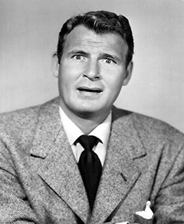happiness is a worn banjo
I am not good at keeping up a regiment of any fashion (with the notable exception of the Casa Camino cocktail hour). So I can tell you now that I will fail to meet this daily challenge for the month of August. However, I do applaud Big O. Michael's idea, as it prompts the reader to offer up something positive, and I will attempt to meet the challenge as I am able. Here is one for today:
I've been digging through my old CDs and I came across my Smithsonian Folkways double CD of Doc Watson and Clarence Ashley recorded back in the sixties. Ashley had been around for quite some time at this point, and here he re-records many of the songs he first recorded in the twenties and thirties. I didn't care much for those recordings. I think that age and the addition of Watson really helped Ashley, and that he was much more at his peak by the time the Smithsonian folks recorded him. You can read all about him here.
What makes me happy today is Ashley's "Coo-Coo Bird", and I don't know why exactly. It is probably Ashley's most famous recording and, in my personal opinion, one of the best examples of the claw-hammer style of playing the banjo. This is the way the banjo sounded before Earl Scruggs came along and revolutionized the instrument.
You can sample or download the song here at the Smithsonian's site. I don't download much music, so there may very well be a better place to find it.
Enjoy.
I've been digging through my old CDs and I came across my Smithsonian Folkways double CD of Doc Watson and Clarence Ashley recorded back in the sixties. Ashley had been around for quite some time at this point, and here he re-records many of the songs he first recorded in the twenties and thirties. I didn't care much for those recordings. I think that age and the addition of Watson really helped Ashley, and that he was much more at his peak by the time the Smithsonian folks recorded him. You can read all about him here.
What makes me happy today is Ashley's "Coo-Coo Bird", and I don't know why exactly. It is probably Ashley's most famous recording and, in my personal opinion, one of the best examples of the claw-hammer style of playing the banjo. This is the way the banjo sounded before Earl Scruggs came along and revolutionized the instrument.
You can sample or download the song here at the Smithsonian's site. I don't download much music, so there may very well be a better place to find it.
Enjoy.



2 Comments:
Okay, so not only is that one track cool for those of us who are unashamed lovers of banjo music but I had no idea you could buy tracks from the Smithsonian.
Thanks, Rex. I've just found an excellent way to blow the dogs' college fund.
I believe I might own that recording. I'll have to play it when I get home for work today. Thanks.
Post a Comment
<< Home